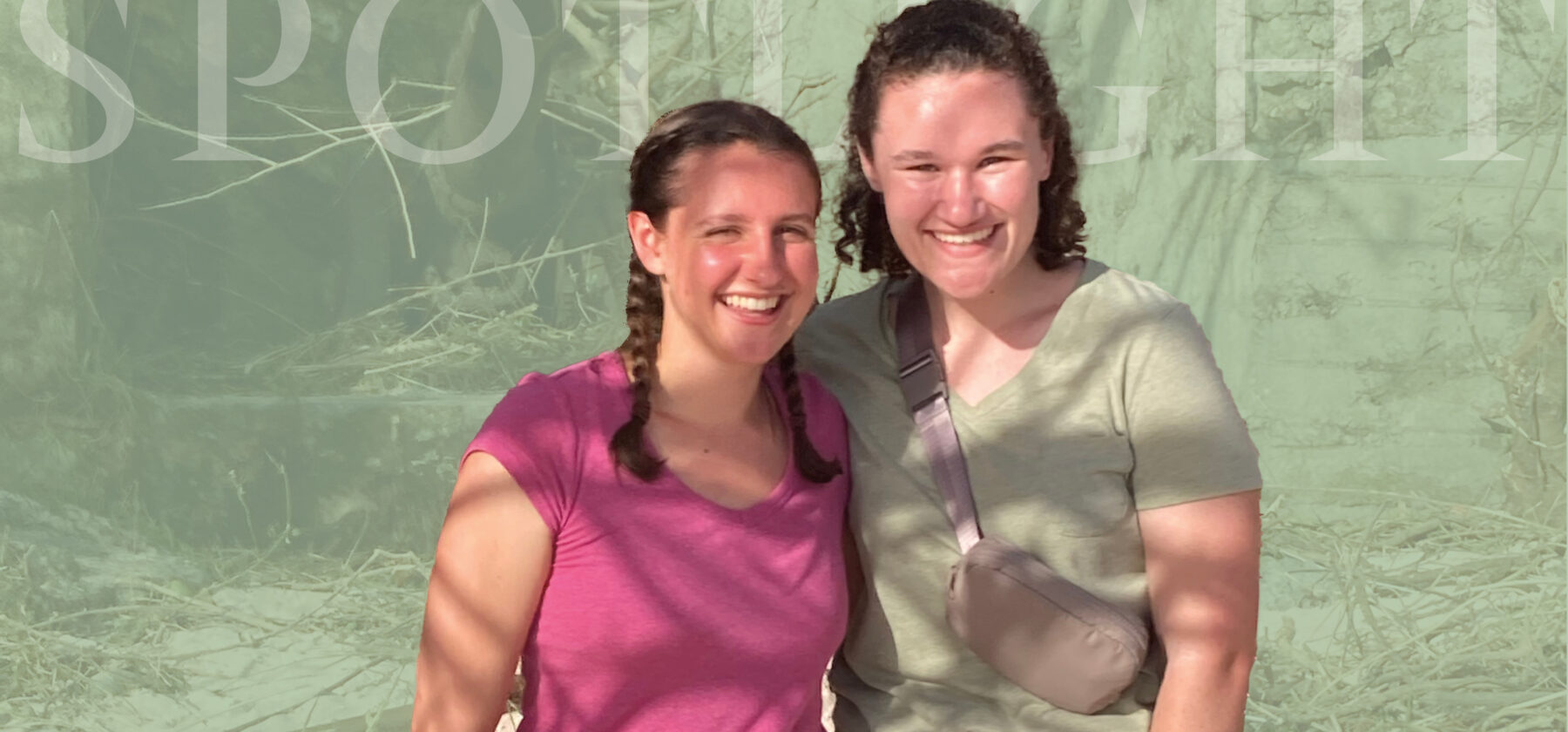Finding Peace Through Perspective and Pancakes
A version of this article originally appeared in the spring 2024 issue of STILLPOINT magazine.
Evelyn Murphy ’25 tucked The Ruthless Elimination of Hurry by John Mark Comer into her luggage for her summer trip to Guam, unaware of how soon she would live out the themes of simplification, stillness and connection. She arrived on the island of Guam on May 14 to live in the women’s dorm at Pacific Island University, where she would work as an instructional assistant for remote classes through Gordon’s Global Honors program. She spent her first week adjusting to life on campus—she set up her dorm room; got settled in her role; hiked with her fellow intern, Anna Mansfield ’24; and reveled in the island beauty that surrounded her.
After ending their week at a local church service, Evelyn and Anna detected restless murmurs in the crowd. Through the Chuukese church members, they learned a storm was headed for Guam. Evelyn’s focus shifted from taking in her surroundings to taking cover as she and her colleagues boarded up windows. Soon the sirens sounded, and it was time to take shelter.
Typhoon Mawar was the first to strike Guam since 2012. High winds tore down power lines and electricity went out immediately. Classified as a “super typhoon,” the storm strengthened to a Category 4, complete with 165 mph winds. Evelyn sheltered with the girls in the women’s dorm, and the men stayed in the library because the roof of the men’s dorm was eventually lost to the storm. She spent 24 hours reading the words of Comer and playing games as the rain pelted and trees fell around her. After a full day and night of shelter, Evelyn emerged to find the beauty of days earlier in pieces around her.
The storm left 150,000 people without power and utilities, yet mercifully no fatalities were reported. Evelyn dove head-first into the clean-up efforts with the students, moving debris and sifting through rubble. But recovery looked different than she expected. “We only spent a few hours cleaning because their culture is one of rest,” she explains. The group took a break for lunch, and the time for connection and community spanned well into the evening.
“I’m not a person who rests easily in everyday life,” she says. “There were trees fallen everywhere, nothing was green anymore. . . that was the physical state of the community, but they were heavily focused on spending time as a community despite the state of things.” Evelyn held back pangs of restlessness as she matched the unhurried recovery pace. Her impatience was compounded by the realization that manual labor was not culturally fitting for a woman. If she was going to assist in restoration, she’d need to think beyond moving debris.
Without a car or electricity, Evelyn leaned heavily on the University HR representative. Josh was an expat who first came to Guam while in the Navy. Moved by his gracious service to her, Anna and the entire recovering student population, Evelyn says, “He was a representative of Christ in the way that he interacted with us.” On a trip to town to charge their phones, Josh stopped to buy bread for Anna and Evelyn. As Evelyn thanked him, Josh graciously remarked, “None of it is mine.”
Evelyn let that sentiment sink in. None of it was Josh’s, and none of it was Evelyn’s. Not the internship plans, not the pace of clean-up, not the cultural gender constructs. “I had to lean into that discomfort,” she says. “These men are working around me, and they’re loading the truck up with debris and driving it down the road every hour or so, but I need to just sit here and dwell in the community and get to know it.” Evelyn used the space created by stillness to learn about the faith backgrounds of the students around her. She had opportunities for intentional conversations, prayer and supporting students as they worked to rebuild their community. One morning Evelyn came across two local girls preparing disaster rations as aid arrived from a local source. Huddled over a portable gas stove in the women’s dorm, they were trying to prepare the mix provided and told Evelyn, “We don’t know how to make these pancakes.”
Evelyn knew the power of a warm breakfast and seized the opportunity to nurture the community with a staple American comfort food. She became famous for her pancakes, often awakening to the sound of students yelling, “Evelyn, pancakes!” What was once unsettling became natural as she experienced the power of humble service in the ordinary.
A few weeks into the typhoon’s aftermath, Evelyn’s trip had to be cut short. With the power lines visibly grounded on her ride to the airport, she struggled to come to terms with leaving. She had great appreciation and respect for how experiencing a disaster in a new way had grown her. “Resting in God’s providence and strength was something that I had to work on,” she said.
In the end she rests in what Josh said: none of it is ours. The words of Comer personified during her summer—the plans we have for our lives, the ways we serve, the outcomes we strive to control— none of this is ours. Yet there is peace found in human connection; in reaching out to God in humble surrender; and, just maybe, in an artfully prepared stack of pancakes.
 The Bell
The Bell